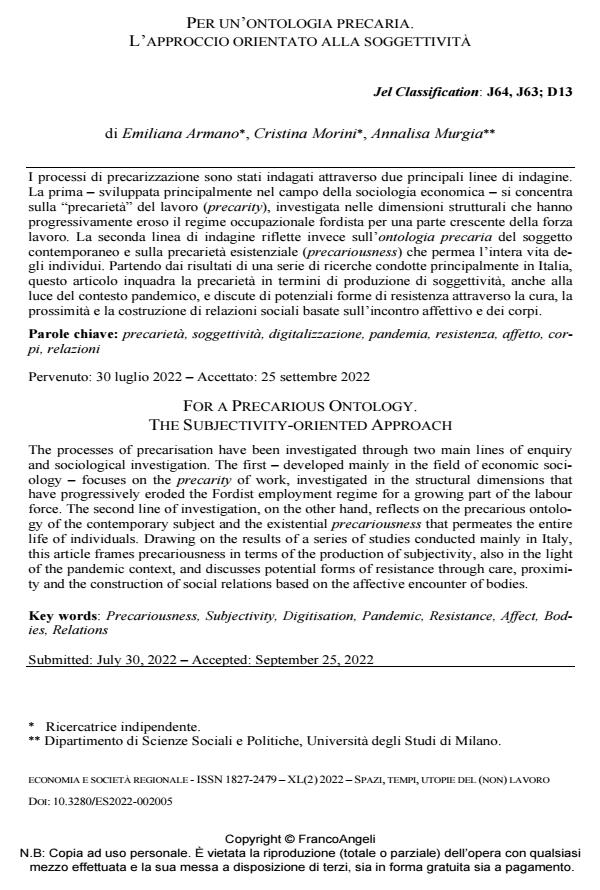For a precarious ontology. The subjectivity-oriented approach
Journal title ECONOMIA E SOCIETÀ REGIONALE
Author/s Emiliana Armano, Cristina Morini, Annalisa Murgia
Publishing Year 2022 Issue 2022/2
Language Italian Pages 15 P. 48-62 File size 285 KB
DOI 10.3280/ES2022-002005
DOI is like a bar code for intellectual property: to have more infomation
click here
Below, you can see the article first page
If you want to buy this article in PDF format, you can do it, following the instructions to buy download credits

FrancoAngeli is member of Publishers International Linking Association, Inc (PILA), a not-for-profit association which run the CrossRef service enabling links to and from online scholarly content.
The processes of precarisation have been investigated through two main lines of enquiry and sociological investigation. The first - developed mainly in the field of economic sociology - focuses on the precarity of work, investigated in the structural dimensions that have progressively eroded the Fordist employment regime for a growing part of the labour force. The second line of investigation, on the other hand, reflects on the precarious ontolo- gy of the contemporary subject and the existential precariousness that permeates the entire life of individuals. Drawing on the results of a series of studies conducted mainly in Italy, this article frames precariousness in terms of the production of subjectivity, also in the light of the pandemic context, and discusses potential forms of resistance through care, proximity and the construction of social relations based on the affective encounter of bodies.
Keywords: Precariousness, Subjectivity, Digitisation, Pandemic, Resistance, Affect, Bod- ies, Relations
Emiliana Armano, Cristina Morini, Annalisa Murgia, Per un’ontologia precaria. L’approccio orientato alla soggettività in "ECONOMIA E SOCIETÀ REGIONALE " 2/2022, pp 48-62, DOI: 10.3280/ES2022-002005